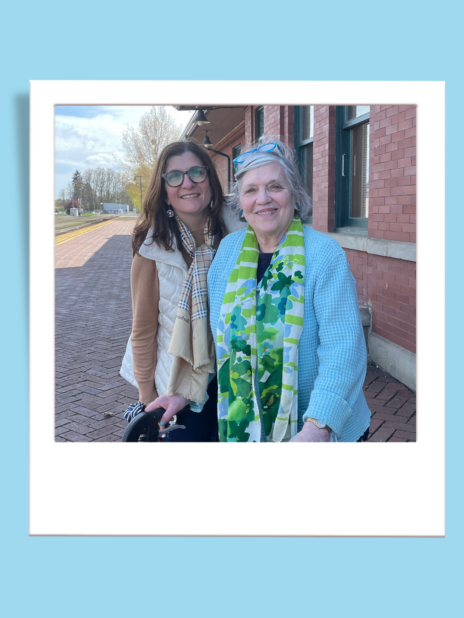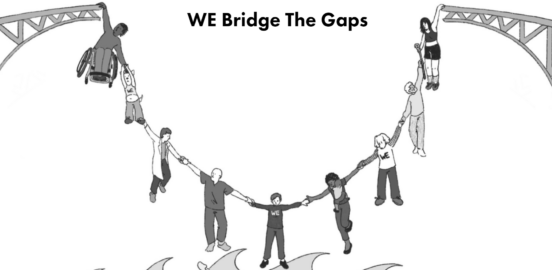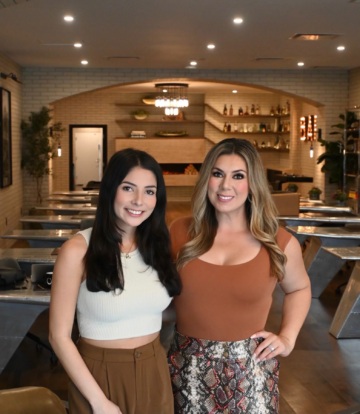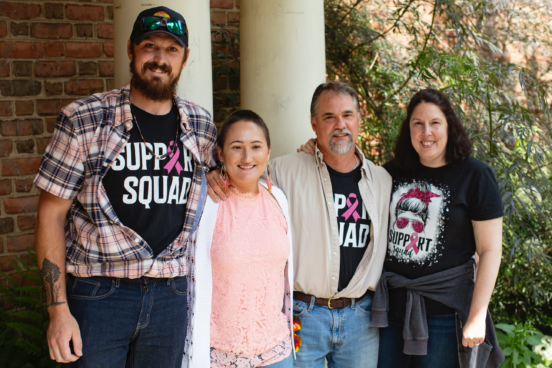Caregiving, Needs Navigation, Storytelling

Jen Barth shares her tips of traveling as a caregiver with her mom.
“I can’t wait to hear all about your time off!”
“You’re so lucky you got to escape reality last week!”
“So glad you got time away to relax and recharge!”
These are all fairly typical comments to get after returning from being away, but I’m never quite sure how to respond given the realities of what a “vacation week” looks like when I’m traveling with my mom, who has progressive Multiple Sclerosis (MS). While I usually reply that yes, it was great to get away, I sometimes wonder if sharing a behind-the-scenes glimpse would be helpful — especially after learning how many others are also serving as informal family caregivers, among many other hats we may be wearing.
As with many families navigating a progressive chronic disease, the path to today didn’t happen overnight. When my mom was diagnosed back in 2009, I had recently moved from California to Portland, Oregon with twin toddlers in tow; she was still working full time and living on the East Coast. It was an era when requesting medical accommodations and/or remote working consideration meant disclosing a diagnosis that could end both her career and healthcare access, since protections for individuals with pre-existing conditions were not yet in place. There were also few in-person support groups, limited online resources, and no FaceTime or Zoom to keep us connected as we began navigating the road ahead.
With many unknowns to consider, my mom was clear that she wanted to do as much as possible before her symptoms progressed further, and to enjoy every moment possible with her young granddaughters. She moved to Oregon the following year, and I’ve been an informal member of her care team ever since. Initially, my mom was the one playing much more of a caregiver role for us as my husband and I juggled two careers with long hours, grappled with inconsistent childcare options for our preschoolers, all while keeping up with our super-high-energy-escape-artist puppy. Since then, so much has changed — those preschoolers are high school juniors, our career paths have taken on multiple new chapters, that beloved puppy kept us on our toes for 13 amazing years, and the world around us has shifted in almost every way imaginable.
As my mom’s MS progresses, so has my role in supporting her, an experience that continues to open my eyes to the many challenges that come with navigating complex healthcare needs, advocating for personalized care, and living with a disability.
So after the considerable stress, isolation, and uncertainty of the past several years, we’ve been trying to make more concerted efforts to get “out and about” for a change of scene when we can. We started with a few nearby overnight excursions and have taken two longer trips together over the past year. Here are a few lessons and tips I’ve been learning as I go:
1) Pre-Travel Planning: Clear Communication is Key
One of the trickiest parts about being an informal family caregiver is that the role is often not clearly defined — there’s no job description, it doesn’t come with a training manual, and we don’t have colleagues to turn to for help when we get stuck, or simply need a break. Being away from everyday routines can make things even tougher to predict, and I’ve realized I need to be much more realistic about all that goes into getting away. A few questions I now ask upfront as we begin thinking about a potential trip are:
2) Airport & Lodging: Expect the Unexpected
While my mom has always been a big planner, we’ve come to “expect the unexpected” when traveling given how many factors are out of our control. While flight delays are never easy for anyone, when you add on the logistics of navigating a wheelchair in crowded terminals, the risk of missing a connection rises exponentially. A few examples of hiccups we hit in our most recent trips include:
3) Out and About: Prepare to Pivot
Even with the most detailed planning, no trip goes exactly as we imagined it would. While every traveler can relate to this, it’s a significantly bigger challenge when you also have a disability. So, here are a few more questions we think about before we go:
4) Heading Home: Rest Up, Reflect, & Revise!
I know how fortunate we are to be sharing this chapter in our lives, and that I have the flexibility to keep other things going remotely while we’re away. The flipside of this, of course, is that work projects and other family responsibilities are often in the mix as well, which means a lot of multi-tasking and gear-switching in the pockets of time between activities. I’m working on being more realistic about this and planning ahead for post-trip recovery & recharging time — something my mom has always been much better at than me!
5) In Between It All: Connect & Create Community
Whether you’re wearing a family caregiving hat or know someone who does, I’m hopeful others might find a helpful tip here, or get inspired to check in with caregivers you know to see if they need some support, or simply a listening ear. I also suggest reading NPAF’s Can We Talk About Caregiving, a resource that helped deepen my own understanding of the family caregiving role — as it truly hadn’t occurred to me to define myself in this way until relatively recently. Connecting with NPAF has also encouraged me to learn more about the broader dynamics and systemic challenges we face; AARP’s Valuing The Invaluable: Strengthening Supports for Family Caregivers is another recommended read for anyone interested in digging deeper on this topic.
And speaking of community — I am coincidentally writing this post while en route back from yet another trip — attending my very first Patient Insight Congress! Having the chance to meet and learn from so many others who are dedicated to amplifying patient voices and advocating for better access to affordable, equitable, quality care has opened up my eyes in many new ways; I’m deeply grateful to be part of this community and look forward to continuing our powerful conversations and connections ahead!
Caregiving, Needs Navigation, Storytelling
Caregiving, Health Literacy, Needs Navigation, Trust
Caregiving, Storytelling, Trust
Caregiving, COVID, Storytelling, Trust



